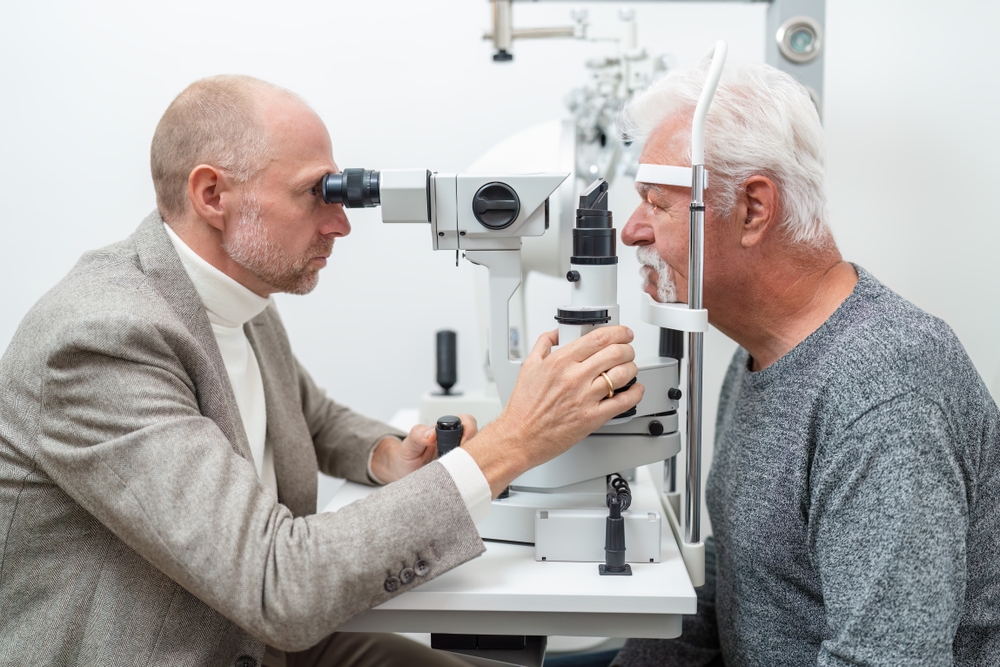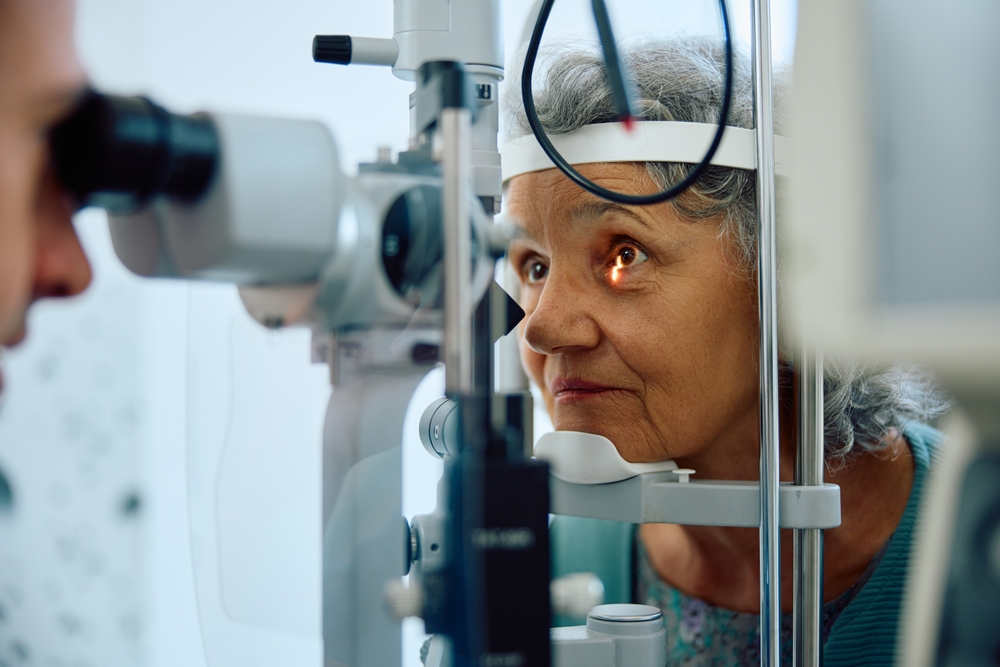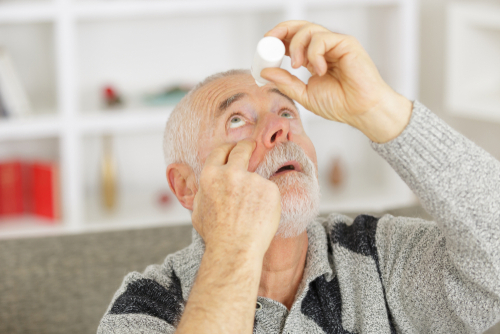Blog post by: Eye Physicians of Long Beach

Glaucoma is an eye condition that gradually damages the optic nerve. This process is so slow and gradual that it often causes vision loss before people notice any symptoms.
Fortunately, you can take steps to protect your vision from glaucoma. Keep reading to learn more about glaucoma and four tips to defend your eyes against glaucoma!
What is Glaucoma?

Glaucoma refers to eye diseases that damage the optic nerve. The optic nerve comprises millions of nerve fibers that send visual information from the retina to the brain, enabling you to see.
Glaucoma happens when there is too much fluid in the eye, often because it can’t leave the eye as fast as it’s being created. The fluid buildup causes the pressure in the eye to rise, slowly damaging the optic nerve.
This pressure is known as intraocular pressure or eye pressure. Some people still develop glaucoma, even with normal eye pressure so it is imperative that you have someone look at your optic nerve.
That is the best way to understand your risk of glaucoma. Without early detection and timely treatment, glaucoma can lead to permanent vision loss and blindness.
What Can You Do to Protect Your Eyes from Glaucoma?
While preventing glaucoma isn’t always possible, there are some steps that can decrease your risk and limit its permanent damaging effects.
Know Your Family History
Understanding your family history can help protect your vision and eye health. While anyone can get glaucoma, the risk tends to be greater if you have a family member with the condition.
Having a parent, sibling, or grandparent with glaucoma makes you more likely to get it. The risk is even higher if you have more blood relatives with the condition.
If you have a family history of glaucoma, it’s essential to tell your ophthalmologist. They’ll likely recommend more regular exams to stay on top of your eye health.
Any vision damage caused by glaucoma cannot be reversed. That’s why early detection and treatment are critical to avoid vision loss and prevent the condition from progressing.
Get Frequent Eye Exams

Routine eye examinations are often overlooked, yet they play a critical role in safeguarding your vision from many different eye conditions, including glaucoma. For many people, glaucoma doesn’t present symptoms in the early stages.
That’s why many people with glaucoma don’t know they have it. Comprehensive eye exams can ensure that glaucoma is identified early, allowing your ophthalmologist to treat it sooner before it causes significant damage and when treatment is most effective.
During a comprehensive exam, the eye doctor will perform a glaucoma screening by checking your peripheral vision, inspecting your optic nerve and drainage angles, and measuring your IOP, among other tests. If you don’t have known risk factors, get eye exams depending on your age.
Maintain a Healthy Lifestyle
A healthy lifestyle plays a crucial role in protecting your eyes from glaucoma and supporting overall eye health. Regular exercise is one of the most important aspects of this lifestyle.
Engaging in moderate physical activity can help lower intraocular pressure and improve blood flow to the optic nerve. Aim for at least thirty minutes of exercise most days of the week.
Not only does exercise benefit your eyes, but it also promotes overall health and well-being. If you smoke, quitting is one of the best things you can do for your eye health and overall well-being.
Lastly, don’t forget to protect your eyes from potential injuries. Wear appropriate protective eyewear during sports activities or when working with hazardous materials.
Eye injuries can sometimes lead to secondary glaucoma, so prevention is key. This includes wearing sunglasses with UV protection when outdoors to shield your eyes from harmful sun rays.
Follow Your Treatment Plan Diligently
If you’ve been diagnosed with glaucoma or are at high risk for developing the condition, adhering to your eye doctor’s treatment plan is absolutely crucial. This commitment to your eye health can make the difference between preserving your vision and experiencing progressive vision loss.
The cornerstone of most glaucoma treatment plans is the use of prescription eye drops. These medications work to lower intraocular pressure, either by reducing the production of fluid in the eye or by improving its drainage.

It’s essential to use these drops exactly as prescribed, which often means applying them at specific times of the day. Create a routine or set reminders to ensure you never miss a dose. You won’t notice any immediate changes in your vision when using the drops. Glaucoma treatment is about long-term management and prevention of further damage.
Regular follow-up appointments are another critical component of your treatment plan. These visits allow your eye doctor to monitor your condition, check your eye pressure, and assess any changes in your vision or optic nerve health.
They may perform various tests, including visual field tests and imaging of your optic nerve. These appointments also provide an opportunity to discuss any side effects or concerns you may have about your treatment.
Be sure to keep all scheduled appointments and come prepared with any questions or observations about your eye health. In some cases, your eye doctor may recommend surgical procedures to manage your glaucoma.
Remember, glaucoma is a chronic condition that requires ongoing management. Your treatment plan may need adjustments over time based on how your eyes respond. Be patient and maintain open communication with your eye care team.
Do you want to have your eyes screened for glaucoma? Schedule an appointment at Eye Physicians of Long Beach, in Long Beach, CA, today!
